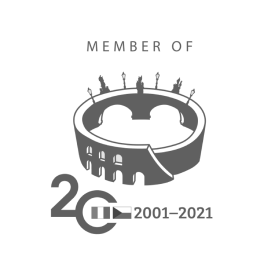
Short-term rentals in Czech Republic: regulation and future implications
In recent years, the expansion of short-term rentals, driven by platforms like Airbnb, has transformed the urban landscape in many European cities, including Prague. While these rentals have increased tourism revenue, they have also significantly impacted the real estate market, housing affordability, and urban livability. Aware of these issues, the Czech Republic has decided to introduce new regulations, which will come into effect in 2025.
Prague, like many other European cities, has seen a rapid growth in short-term rentals, particularly in central areas. This trend is especially pronounced in Prague 1, where many apartments have been converted into tourist accommodations. The widespread presence of such rentals has considerably reduced the availability of housing for residents, exacerbating an existing housing crisis.
The Czech Republic has one of the worst ratios in Europe between average income and housing costs. According to the 2024 Property Index by Deloitte, buying a standard home in the country requires saving the equivalent of 13.3 gross annual salaries, a figure that has remained largely unchanged from previous years. This dynamic has also driven up rental prices, which in Prague reached €15.9 per square meter in 2023. These high costs have made renting prohibitive for many residents, forcing them to move away from the city center.
Social and cultural impacts have also been significant. The transformation of residential apartments into vacation rentals has reduced the stable population in central districts, weakening the social fabric. Furthermore, issues such as noise, overcrowding, and waste management have compromised the quality of life for the few residents remaining in tourist-heavy areas.
To tackle the challenges posed by short-term rentals, the Czech government has announced a series of regulations to be implemented in 2025. Municipalities will gain more autonomy and will be able to set maximum durations for rentals, limiting the number of days a property can be rented via platforms like Airbnb. The aim is to prevent properties from being used exclusively as vacation rentals at the expense of permanent housing availability. There will also be restrictions on the maximum size of spaces that can be rented out short-term, particularly in central areas, to protect residential use.
Another major change involves increasing the tourist tax. Currently set at approximately 50 CZK per night, the tax is expected to rise to align with the European average. This measure is designed to generate additional tax revenue that can be reinvested in public services and the management of tourist areas. Estimates of the shadow economy suggest that many stays booked via online platforms are not reported, resulting in annual losses of around 800 million CZK for the state. Local municipalities also lose approximately 55 million CZK each year in uncollected tourist taxes.
To address these issues, the government will introduce a new digital system called eTurista. This system will require all hosts and platforms to register. It will allow for centralized and simplified data management, eliminating the need for separate records across different state and local agencies and reducing the risk of tax evasion. The system will become operational in 2025 and is expected to improve transparency and oversight of the short-term rental market, preventing illegal practices and enhancing the management of tourism resources.
Both local and national authorities have highlighted the importance of the new regulations in balancing the needs of tourism with those of residents. In Prague 1, the district most affected by the rise of short-term rentals, the phenomenon has led to a significant decline in the stable population and an increase in problems related to noise and urban degradation, negatively impacting quality of life. Additionally, limiting short-term rentals is seen as a tool to curb real estate speculation and make housing more accessible for local residents.
The introduction of these new regulations is expected to have economic and social implications, with both positive and negative potential effects. Among the anticipated benefits are a possible reduction in pressure on the real estate market, thanks to a greater availability of long-term rental housing and a likely decrease in housing prices. Restrictions could also improve urban livability by reducing disturbances in residential areas and promoting a better balance between tourism and local life.
However, challenges remain. Digital platforms like Airbnb fear that the new rules might reduce Prague’s appeal to international tourists, negatively affecting visitor numbers. Another concern is the practical enforcement of the regulations: the effectiveness of these measures will depend on the authorities’ ability to monitor and penalize illegal rentals, an issue that is already widespread in the city.
Prague’s regulation of short-term rentals could serve as a model for other European cities facing similar challenges. Cities like Amsterdam, Barcelona, and Berlin have already implemented comparable restrictions, with varying degrees of success. The flexibility of the Czech regulatory framework, which allows municipalities to adapt the rules
Sources:https://www.expats.cz/czech-news/article/how-prague-wants-to-limit-airbnb-services-from-2025, https://www.expats.cz/czech-news/article/czech-republic-prepares-new-regulations-for-airbnb-and-similar-providers, https://praguemorning.cz/new-law-could-limit-short-term-rentals-across-czechia-in-2025/, https://www.themayor.eu/en/a/view/czechia-to-curb-short-term-rentals-in-2025-12738, https://www.praguedaily.news/2024/11/15/prague-1-plans-to-step-up-action-against-illegal-short-term-rentals/, https://shorttermrentalz.com/news/czech-prague-details-legislation-2025/




